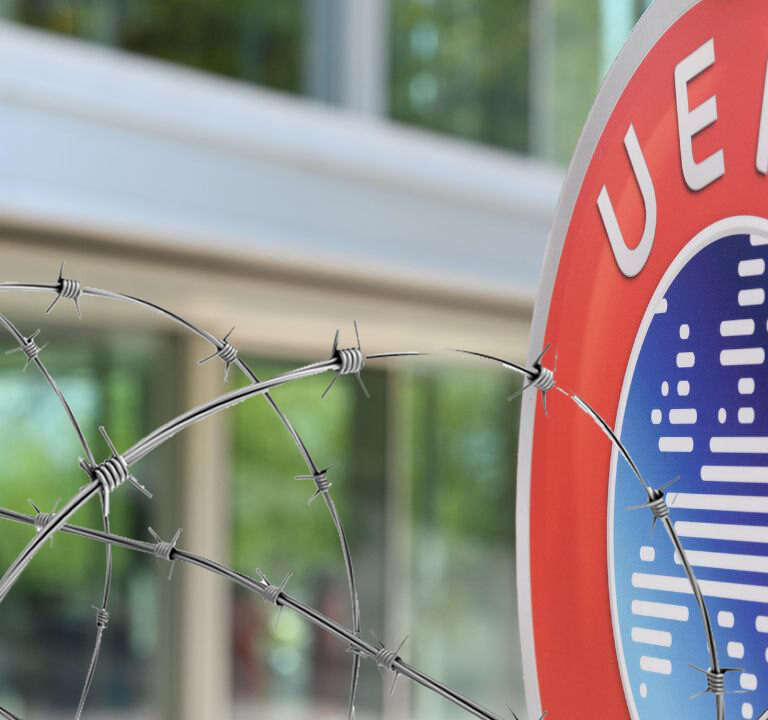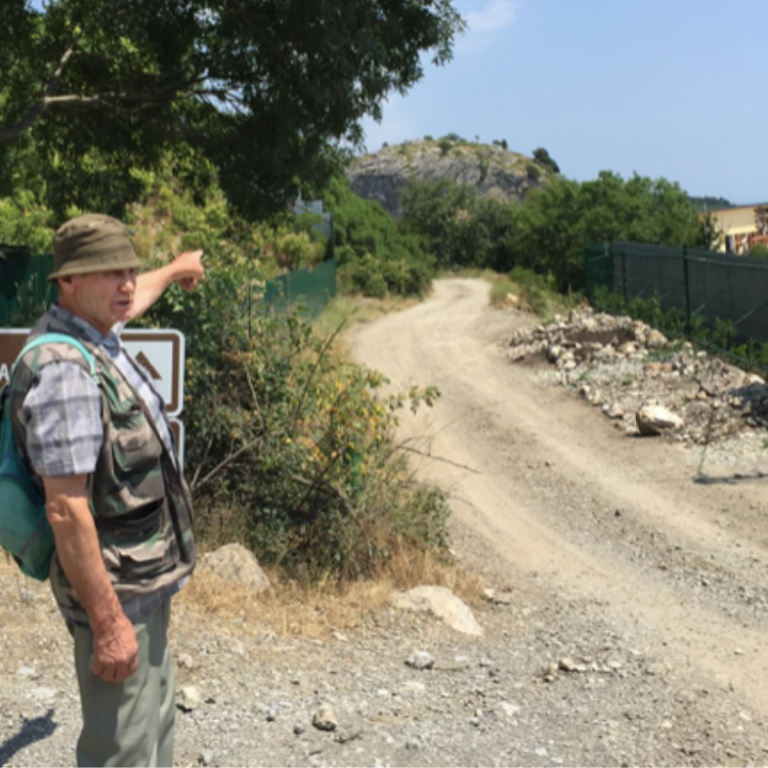Professor Borys Babin
During 2022 our Association sent some submissions to such UN structure as International Telecommunication Union (ITU) regarding relevant aspects of Russia’s aggression against Ukraine.
ARC informed ITU in prepared materials that since the beginning of the large-scale Russian aggression, the invaders have increased the level of violations of the right to freedom to receive and disseminate information in the occupied Crimea, and then began to massively deprive of such right residents of territories, criminally seized by aggressor since February 2022, in particular in Donetsk, Kherson, Luhansk and Zaporizhzhya regions.
This took place as part of the destruction, damage and seizure by the invaders of equipment, stations and channels of mobile communications and the Internet, television and radio companies, as well as in the framework of the persecution of journalists, bloggers, employees of Ukrainian providers and media, the creation of fake “information structures” and illegal “communications enterprises”.
ARC proposed to consider at the Plenipotentiary Conference 2022 (PP-22) of the Union, scheduled for September-October 2022 in Bucharest, the issues of the functioning of representatives of the Russian special services as Union “officials”. ARC later got some feedback from sertain member states regarding our submission, but there was no official information available on ITU web-cite regarding aspects of Russian aggression for a long period.
Only in January, 2023 some relevant data, not published before were placed on web-sources of ITU. But the world community got information regarding this issue not from ITU news or official statements, but from article of Ray Le Maistre, editorial director of “TelecomTV”.
Le Maistre is British editor and journalist covering the telecoms sector for 25 years, and “TelecomTV” is a multimedia information resource for the communications networking industry, “delivering insight into the key developments shaping the future of the telecoms and broader digital connectivity industry”. As this media points, “we keep the industry, and those who rely on it, up to speed on critical developments and trends”.
Le Maistre points that ITU new leadership team, headed up by secretary general Doreen Bogdan-Martin from the US, began its four-year term on 1 January, 2023. He stresses that in latter months of 2022 world community waited from ITU Report into the impact on the Ukraine’s communications sector of the Russian invasion.
Such report was foreseen by ITU Resolution 1408 “Assistance and support to Ukraine for rebuilding their telecommunication sector”, adopted on 7th April, 2022. Resolution reaffirmed the sovereignty, independence, unity, and territorial integrity of Ukraine within its internationally recognized borders, extending to its territorial waters, deploring in this regard widespread destruction of critical infrastructure, failure of telecom services and mobile phone outages that have occurred across Ukraine since the beginning of the war.
Also, in Resolution, ITU resolved to instruct the directors of the ITU Bureaux to monitor and provide regular reports on the particular needs of Ukraine in the field of telecommunications, and to prepare proposals for effective technical assistance. Aslo they were instructed to carry out an assessment on the impact of the war in Ukraine to ITU programmes and activities in the region, and provide a report thereon and to ensure adequate financial and human resources mobilization, including under the internal budget and the Information and Communication Technology Development Fund, for the implementation of the proposed actions.
More, Resolution instructed the Secretary-General to coordinate the activities carried out by the ITU Sectors, to ensure that the Union’s action in favor of Ukraine is as effective as possible, and to provide a report on the matter to the 2022 Plenipotentiary conference and to the Council meeting in 2023, and future meetings and conferences as appropriate.
But, adds Ray Le Maistre in his article, there was interested states’ and structures’ real anticipation around, and demand for, the report, mentioned in Resolution. At the ITU’s Plenipotentiary Conference in Bucharest in October 2022, the ITU’s then secretary general, Houlin Zhao, informed member states that allegedly the “report required more work”, but as it was mentioned above, exactly he was responsible to prepare this report just before the Conference.
As “TelecomTV” adds, reacting on the non-activity of Communistic China’s representative Houlin Zhao delegations of representatives from 44 states, including Ukraine then issued a joint statement, where pointed: “The delegations of the mentioned countries thank the Secretary General for his oral update on the implementation of the 2022 ITU Council Resolution 1408… We look forward to the release of the first written report assessing the impact of the war in Ukraine in the field of telecommunications, and providing proposals for effective assistance, at the earliest opportunity and in any event no later than the end of 2022”.
Joint statement pointed that, “as an important member of the UN family, the ITU cannot ignore the fact that it is Russia which is responsible for the war in Ukraine. …Russia’s actions have had a devastating impact over the operation of telecommunication facilities and services in Ukraine and on the exercise of Ukraine’s sovereign right to regulate telecommunications within its internationally recognised territory. Russia has lost its status as a credible partner for ITU activities and cannot claim to promote its values”.
Also 44 stated called ITU “to refrain from any actions or publications that might be interpreted as recognising or endorsing any alteration of the internationally recognised borders of Ukraine, and to support Ukraine in exercising its sovereign right to regulate telecommunication within those borders”.
The pointed Report was really essential in issues of collecting funds in framework of ITU-led “Partner2Connect” coalition to help maintain communications services in Ukraine, and includes the officially declared donation from ten states, also as well as collective support from the European Union for the Ukraine’s civil needs; delay with report meant the possible problems with relevant issues in future. “TelecomTV” prove this by citing letters from the ITU press office.
Ray Le Maistre points on the “questions still remain unanswered”, including “why isn’t this report – which was signed off by the previous secretary general” and was “in high demand by government delegations from all over the world” was not highlighted by the ITU? “Why no media announcement? Why is it not available in the publications section of the ITU website? Why does the report not show up in ITU website search results?” asks “TelecomTV” author.
Obliquely, the ITU media team repeatedly stated that “notifications that the assessment was published were made based on inquiries received” and, adds Le Maistre, which is how “TelecomTV” found the Report – they had to request ITU a link as it is not discoverable via website navigation or search.
It’s hard to know what to make of the ITU’s actions and responses, adds “TelecomTV”: “It’s as if it isn’t very keen” on the publication the Report; is ITU worried about “upsetting Russia?” “Are there political forces at work within the ITU that are holding back the promotion of the report’s availability?” asks the researchers.
Whatever it is that has been keeping the clearly important interim assessment on damages to telecommunication infrastructure and resilience of the information and communication technologies (ICT) ecosystem in Ukraine in report out of the ITU spotlight so far, “let’s hope it doesn’t constrain the easy availability of any future, similar reports and that more can be done to highlight how much Ukraine needs help in rebuilding its critically important ICT infrastructure” adds the expert.
Anyway the Report was published on 23of December, 2023 the last working day before New Year holidays, as “a final sign-off by the then secretary general Houlin Zhao, has squirrelled it away in the recesses of the ITU website, within the ITU Development Bureau’s section, on a page that appears to be impossible to find through the site’s regular navigation”. The head of the ITU Development Bureau was Doreen Bogdan-Martin on that moment, before her new chair-2023.
The ITU Report grounded on data, given by Ukraine’s officials and collected by ITU as of August 2022, it was written by experts at the ITU Office for Europe.
Report states that information and communication technologies networks of operators were partially and, in some instances, fully destroyed or occupied, that within a period of six months of war, 1123 cyber-attacks were reported, targeting all the sectors of the economy of Ukraine, including IT and telecommunications; that as of July 2022, 12.2 per cent of homes lost access to mobile communications services including 3.1 per cent partially, 11 per cent of base stations of mobile operators were out of service and 20 per cent of the country’s telecommunication infrastructure was damaged or destroyed.
Report states that the economic losses of the telecommunication sector have been estimated to be more than USD 0.1 billion and direct damage of telecommunication facilities, networks, systems, and equipment is estimated at USD 0.71 billion. Also, Report points, telecommunication companies provide 22 per cent fewer services, which has resulted in reduced income and revenues, and USD 1.79 billion is needed to restore the telecommunication sector.
Also, as out Association also informed to ITU, Report points that the aggressor illegally unilaterally changed the international numbering system defined by the ITU in Recommendation ITU-T E.164 (11/2010)45 and Recommendation ITU-T E.212 (09/2016)46 and the national numbering system of Ukraine, by illegal introducing new national destination codes (NDC) for the temporarily occupied and war-affected territories of Ukraine and illegal using them under the country code (CC) [7], allocated by ITU to Russia and Kazakhstan.
Ukraine national destination code (NDCs) and a mobile network code (MNC) as well as other NDCs have been illegally used by “fixed and mobile communication networks” operating for the benefit of an aggressor in the temporarily occupied territories of Crimea, Sevastopol, Donetsk, Luhansk, Kherson and Zaporizhzhia regions by illegal switching to the international numbering system of the Russian Federation, adds the Report.
The significance of this Report’s data is crucial as it is de-facto first position of UN specialized agency on this issue for a long time.
So the reasons of such described delay with elaborating and publishing of this document are obvious and in next researches we will show the impact of relevant international activities to the sanctions policy and neutralization Russia’s aggressive policy in telecommunication area, as on occupied territories of Ukraine, so in third countries.







